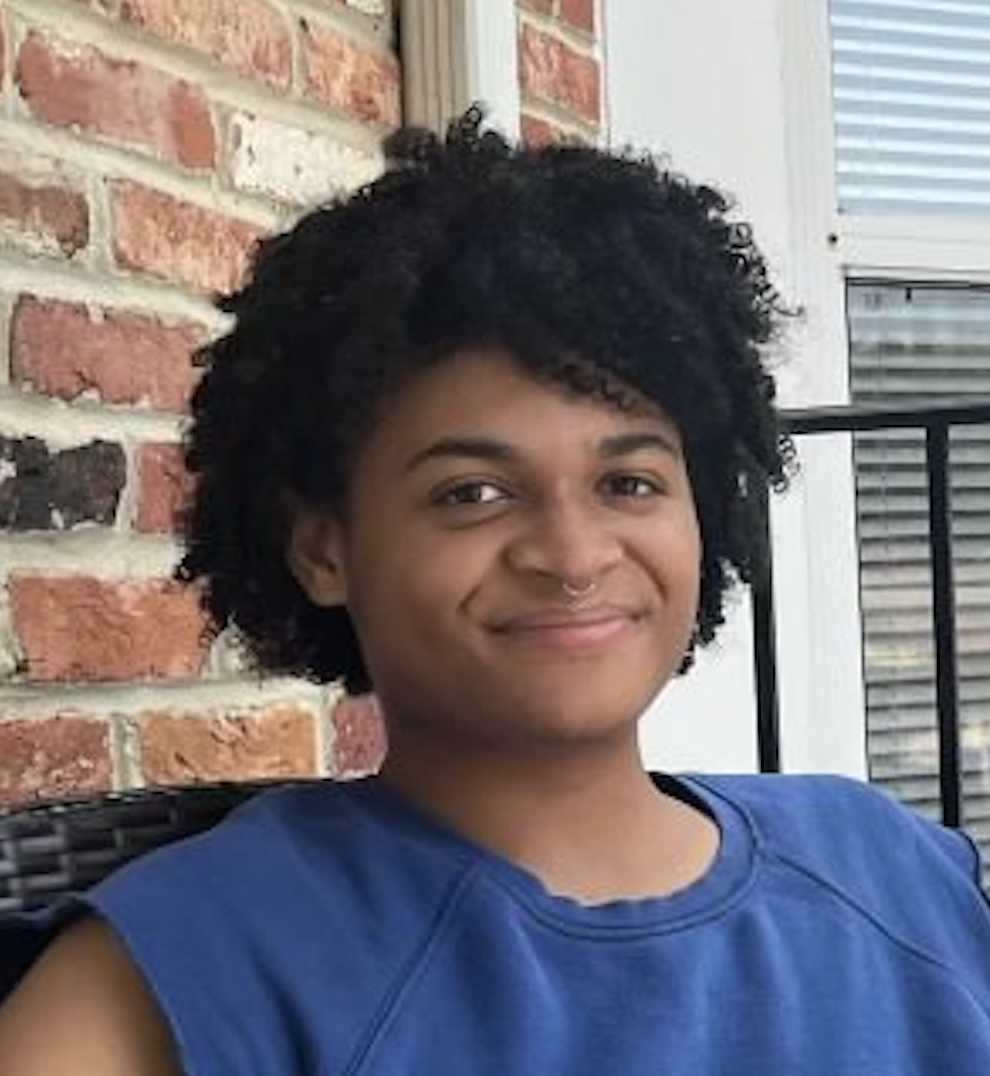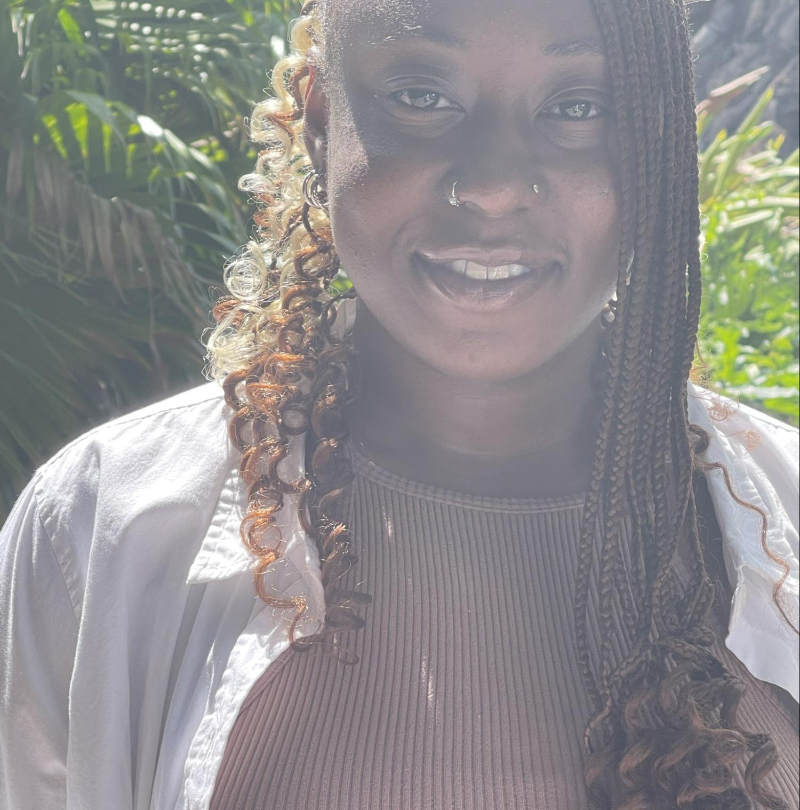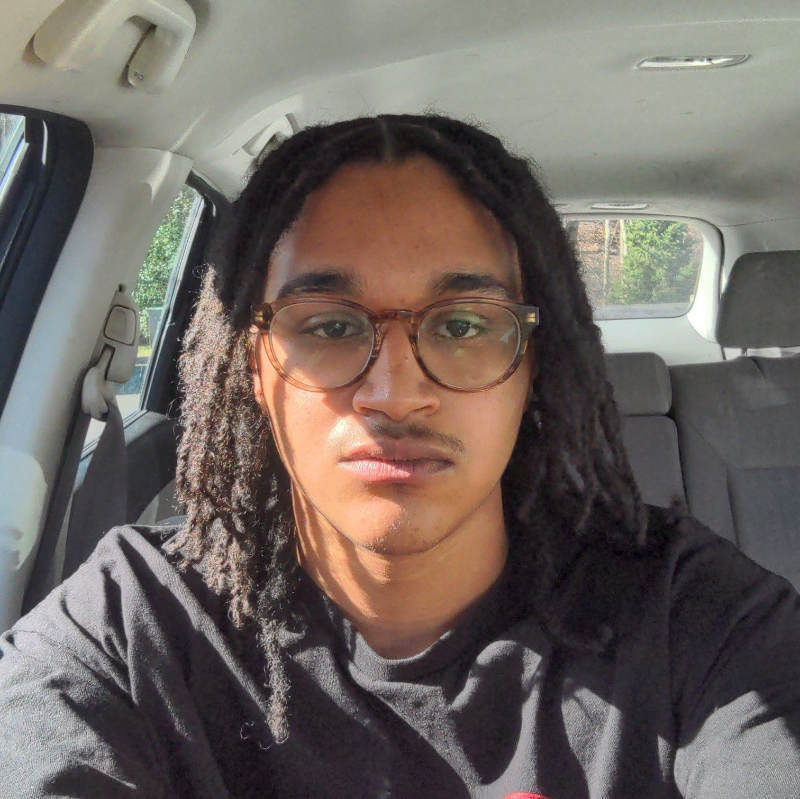Student Perspectives

Rae-Aila Crumble (she/her)
Africana Studies major
Class of 2026
My favorite classes in Africana Studies have been Afrofuturism and Black Surrealism, taught by Professor Jordon-Conlin and Reyes-Salas, respectively. From poetry to music, the Black art interrogated throughout these courses was art I hadn’t previously been allowed to extend academic and critical interpretations towards.
I also enjoyed the breadth of the coursework, connecting different histories of Black literature with Black media from today that I was more familiar with. Africana Studies has given me honesty. By often focusing on race, a major social signifier for most, Africana Studies gets to the root of day-to-day and monumental occurrences in ways that other areas of study may not see due to the lack of emphasis. I knew I wanted to be an Africana Studies major in high school when I independently read works of Assata Shakur and Marcus Garvey, opening histories that I felt deeply connected to and was previously ignorant towards.
Africana Studies gives you every skill you need to analyze social issues in the real world. By learning to carefully navigate marginalized perspectives, you become a master at moving through a multicultural, diverse world while embodying empathy. Before Vassar, my relationship with Africana Studies was limited to my own independent interest outside of any schooling institution.

Fanta Wague (she/her)
Africana Studies and Psychology double major
Class of 2025
I would say that the class at the very top of this list is Surrealism Across the African Diaspora with Professor Reyes-Salas. He was able to perfectly marry surreal texts with historical contexts, allowing us as a class to feel the importance and urgency of the materials we interacted with. Additionally, he allowed us to create our own surreal works, giving us a first-hand experience of surrealism.
Africana Studies does not stray away from critical thinking surrounding existing institutions. I have been supported and even emboldened by my education to question the way things exist and to seek justice in even the most dire circumstances. Initially, I took Rebel Routes with Professor Denisse Andrade in my first year. During this course, I realized abolition can start at any level, as well as its importance in my other field of study, Psychology. I then started pursuing a correlate in Prison Studies. By the end of my sophomore year, I had explored the Africana Studies program and was on track to complete a double major.
Africana Studies can provide a framework for understanding the way the world (dys)functions and why we find ourselves in the midst of such conditions. Rather than leaving its scholars in melancholy, Africana Studies gives us the resources to assess our circumstances and begin fixing them ourselves. Prior to Vassar, I did not have any explicit Africana Studies education. What I did have occurred within the home from either a parent or an aunt recommending a book and me exploring on my own. This background has given me a level of independence in my study that I retain to this day.

Kwabena Adae (they/them)
Africana Studies major
Class of 2026
My favorite class so far has been the Intro to Africana Studies class. I enjoyed it because it investigated a lot of different ideas and writers that found common ground over fundamental questions of the African diasporic experience.
Africana has allowed me to access whatever realms of culture, study, and thought that I want without being constricted by the regimen of certain fields or majors. I still haven’t taken any Africana Studies class cross-listed with the same departments, even before getting to the classes with serious prerequisites. No other field of study allowed me to be that free in what and when I wanted to choose things.
I felt confident in dedicating myself to Africana Studies whether by major or not. I knew that I wanted to be a major when I realized whatever other departments or programs I encountered, I essentially wanted to understand them from the perspectives I find most often in Africana Studies classes or subjects of study. If I was going to involve those perspectives anyway, why not focus them more directly with a major?
The Africana Studies program is a collection of multi-disciplinary approaches to issues of the African diaspora. It challenges students to understand perspectives of incredible minds that often balance a nuanced comprehension of many of the world's horrors while introducing some of humanity's longest, proudest, and most impressive histories. Before Vassar, Africana Studies and subjects produced some of my most rewarding classes. I applied as a potential Africana Studies major.